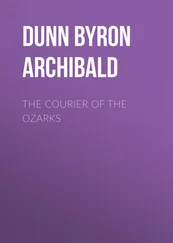Byron Dunn - Raiding with Morgan
Здесь есть возможность читать онлайн «Byron Dunn - Raiding with Morgan» — ознакомительный отрывок электронной книги совершенно бесплатно, а после прочтения отрывка купить полную версию. В некоторых случаях можно слушать аудио, скачать через торрент в формате fb2 и присутствует краткое содержание. Жанр: foreign_antique, foreign_prose, на английском языке. Описание произведения, (предисловие) а так же отзывы посетителей доступны на портале библиотеки ЛибКат.
- Название:Raiding with Morgan
- Автор:
- Жанр:
- Год:неизвестен
- ISBN:нет данных
- Рейтинг книги:5 / 5. Голосов: 1
-
Избранное:Добавить в избранное
- Отзывы:
-
Ваша оценка:
- 100
- 1
- 2
- 3
- 4
- 5
Raiding with Morgan: краткое содержание, описание и аннотация
Предлагаем к чтению аннотацию, описание, краткое содержание или предисловие (зависит от того, что написал сам автор книги «Raiding with Morgan»). Если вы не нашли необходимую информацию о книге — напишите в комментариях, мы постараемся отыскать её.
Raiding with Morgan — читать онлайн ознакомительный отрывок
Ниже представлен текст книги, разбитый по страницам. Система сохранения места последней прочитанной страницы, позволяет с удобством читать онлайн бесплатно книгу «Raiding with Morgan», без необходимости каждый раз заново искать на чём Вы остановились. Поставьте закладку, и сможете в любой момент перейти на страницу, на которой закончили чтение.
Интервал:
Закладка:
“No one can blame him, even if you give him but a moment of your company,” replied Morgan, gallantly. “But Miss Osborne, I am sorry to say we took your friend prisoner. He was paroled, and no doubt is now on his way North.”
Miss Osborne blushed, and then said, “A good riddance; I trust I shall never see him again. But he was kind to papa. He even returned the horse; would not keep him.”
“That is lucky,” responded Morgan, “for if he hadn’t been returned, one of my men would be riding him now, and your chance of getting him would be small.”
From Pulaski Morgan pushed northeast, avoiding Shelbyville and Murfreesboro, both of these places being too strongly garrisoned for him to attack with his small force. He crossed the Nashville and Chattanooga railroad ten miles north of Murfreesboro, burned the depot, and destroyed as much of the track as his limited time would admit. From there he rode straight for Lebanon, Tennessee, which place he reached just at nightfall. The inhabitants received him with the wildest demonstration of joy. But trouble was in store for him. His men, wearied with their long ride, and elated over their continued success, became careless. They knew they were among friends, and thought that no harm could come to them, so they slept without fear.
The Federal authorities had become thoroughly alarmed over his progress. Strong bodies of troops were in swift pursuit, from Shelbyville, from Murfreesboro, and from Nashville.
Just before daylight the Federals charged into the little city with whoop and hurrah. Taken entirely by surprise, Morgan’s men thought only of flight. Two companies under the command of Colonel Robert C. Wood being cut off from their horses, threw themselves into a college building in the outskirts of the city, and for three hours defended themselves with desperation. At last being out of ammunition they were forced to surrender.
In this unfortunate affair Morgan lost nearly two hundred of his best troops. The rest were more or less scattered. He himself was chased for eighteen miles, and the pursuit ceased only when he, with the remnant of his troops, had crossed the Cumberland.
The Federals thought they had thoroughly whipped Morgan, and he would give them no more trouble. But they did not know the man. He had started for Kentucky, and to Kentucky he would go. After crossing the Cumberland, he halted, gathered his scattered command together, and then with less than three hundred men, started for Glasgow.
“Lieutenant Pennington will meet us at Glasgow with reinforcements,” he told his men.
But there were some of his officers who had misgivings. Chief among these was Captain Conway. Speaking to another officer, a Captain Mathews, Conway said: “It’s strange that the Colonel has such confidence in that young upstart. As for me, I look for no reinforcements. The best thing we can do is to get back as soon as possible.”
“Captain, what is the matter?” asked Mathews. “What has that young fellow done that you have taken such a dislike to him?”
“Nothing; but the idea of sending a mere boy on such an important mission! Why did he not send some one back with influence?”
“Pennington is well connected; you know his father is Judge Pennington of Danville.”
“That makes little difference. His mission will be a failure; see if it isn’t. We shall see no reinforcements at Glasgow.”
Just then Morgan came riding along, and seeing Conway said, “Captain, I want to thank you for the gallant manner in which you held back the enemy while the command crossed the Cumberland. You did nobly.”
This praise so pleased Conway that for a time he forgot his supposed grievance.
Without further trouble from the Federals, the little command reached Glasgow, where they were received with open arms by the inhabitants. Houses were thrown open to them and food provided in abundance. But nothing had been heard of any reinforcements.
“What did I tell you?” said Conway to Mathews.
“Wait,” was the answer.
The night was an anxious one. Morning came, but still nothing was heard of any reinforcements.
“We will wait another day,” said Morgan.
About noon cheering was heard, and Morgan’s men nearly went wild with enthusiasm, as nearly two hundred splendidly mounted men came galloping into camp.
When the captain in command reported, Morgan thanked him in the warmest terms, and then looking eagerly around, said: “Where is Lieutenant Pennington? I do not see him.”
“Lieutenant Pennington,” answered the Captain, “asked leave to take twenty men and scout toward Cave City. I gave him permission to do so. He has an idea that the railroad might be reached and broken at that point.”
“Ah! I have thought so myself,” replied Morgan. “I shall wait for his report with interest.”
The arrival of the two fresh companies had raised the command to as large, or larger, than it was when it started from Corinth, and every man was eager to go on. It was nearly night when Calhoun reported with his little company. He was jubilant over what he had discovered.
“Colonel,” he said, “we can easily capture Cave City, and thus sever the connection between Louisville and Nashville. The place is lightly guarded.”
“Oh! If we could only take the place, and capture the train on which my gallant men taken prisoners at Lebanon are being taken North, I should be supremely happy,” said Morgan, with much feeling.
“Perhaps we can,” replied Calhoun, with enthusiasm.
“How about going farther north than Cave City?” asked Morgan.
Calhoun shook his head. “It will not do,” he replied; “all the towns are too strongly held for your small force to cope with.”
“At least we can try Cave City,” answered Morgan, and orders were given for the command to be ready to march at sundown. The vicinity of Cave City was reached about two o’clock in the morning. The column was halted and the men were ordered to rest until daylight.
As soon as it was light, Calhoun, with a soldier named Emory, was sent in advance to the place. They were disguised as countrymen, and were to linger around the depot, and when the charge came they were to prevent the telegraph operator from sending warning of the raid.
Dressed in homespun clothes, and riding sorry steeds, Calhoun and Emory played their part to perfection. Their entrance into the little place caused no comment, and excited no suspicion. Sauntering into the depot, they gazed curiously around.
“What’s that?” asked Calhoun, pointing at the clicking telegraph instrument.
“That, my boy,” said the operator, patronizingly, “is a telegraphic instrument. Did you never see one before?”
“No. What makes it tick?”
“Lightning, my son, lightning; that’s a lightning-catcher.”
Calhoun opened his eyes in wonder. “Jes’ heah that,” he said to Emory. “What is it fer?” he continued, turning his attention to the operator once more.
“To send messages,” replied the operator, amused at the ignorance displayed. “With this little instrument, I can talk with any one at Louisville or Nashville.”
“What’s yo-uns givin’ we-uns,” drawled Calhoun. “Do yo’ take we-uns fo’ a fule?”
A guard who stood idly by laughed long and loud. “A fine specimen of Southern chivalry,” he chuckled.
Just then there came the sound of cheering, pistol shots, and the clatter of horses’ hoofs, mingled with affrighted cries.
“By heavens! the town is being raided,” shouted the operator, as he sprang to his instrument.
“Stop!” thundered Calhoun. “Touch that instrument and you are a dead man.”
The operator looked up amazed, only to find himself covered with a revolver.
The guard at the same time was looking into the muzzle of a weapon held by Emory.
Читать дальшеИнтервал:
Закладка:
Похожие книги на «Raiding with Morgan»
Представляем Вашему вниманию похожие книги на «Raiding with Morgan» списком для выбора. Мы отобрали схожую по названию и смыслу литературу в надежде предоставить читателям больше вариантов отыскать новые, интересные, ещё непрочитанные произведения.
Обсуждение, отзывы о книге «Raiding with Morgan» и просто собственные мнения читателей. Оставьте ваши комментарии, напишите, что Вы думаете о произведении, его смысле или главных героях. Укажите что конкретно понравилось, а что нет, и почему Вы так считаете.












